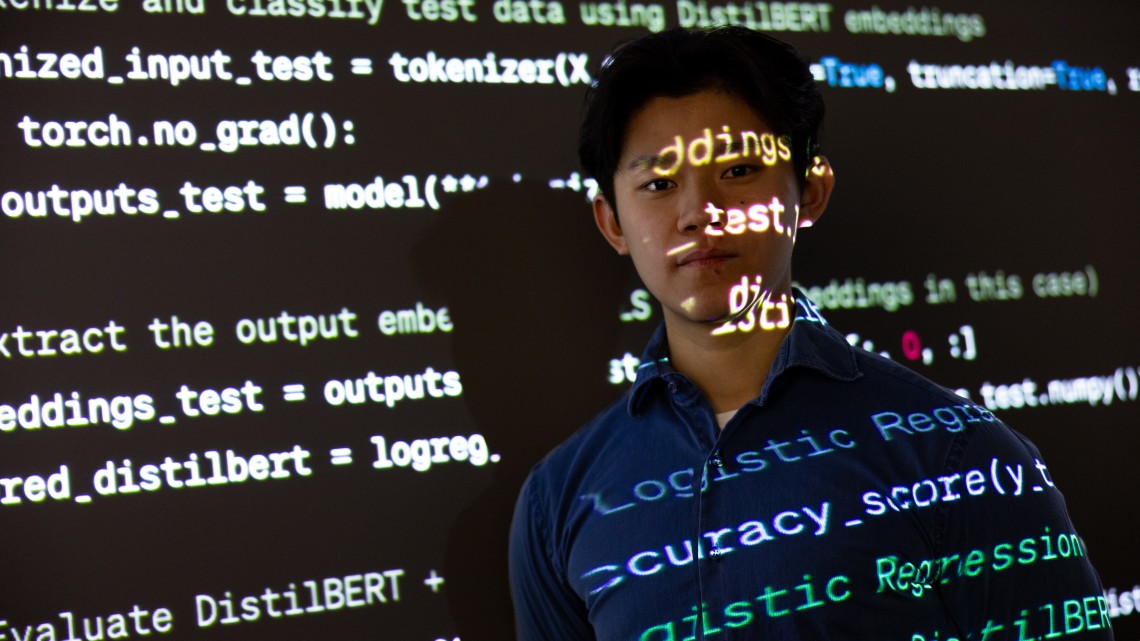
Franklin Zheng '25 experimented with AI in three of his classes this semester.
News directly from Cornell's colleges and centers
Welcoming AI into the classroom
By Kathy Hovis
This semester, rather than banning the use of artificial intelligence (AI) for his assignments, three of Franklin Zheng ’25’s five professors actually required him to use it. It’s a trend happening in universities around the country, as AI becomes another research tool rather than something to be feared.
For Zheng, AI helped him analyze 70,000 court records to find themes, topics, keywords and general sentiment arcs. It came up with a list of best practices within the field of cyber security. And it responded to half of his weekly essays and assignments for a government class.
“When I ask it technical or coding questions, it can come up with simple algorithms and the code will run perfectly fine. It’s a game changer if you’re having it do this kind of busy work,” said Zheng, who’s majoring in information science and minoring in international relations and German studies in the College of Arts & Sciences.
“But when you’re writing an essay and try to incorporate ChatGPT, the amount of setup and prompting it takes to effectively use it nullifies the efficiency of using it,” he said. “In order for it to produce substantive and in-depth writing, you need to provide it with substantive and in-depth prompts. That takes more time than actually writing the essay.”
When ChatGPT and other generative AI platforms first became widely available, professors on many college campuses responded with understandable concern: How will students use this to cheat? How well can the tech write an essay? Can it come up with computer code or solve problem sets and show the steps? And how on Earth can we police this?
But with the arrival of easy-to-use generative AI tools last year, the questions have changed.
“I look at AI as another technology that has extended human capabilities in ways that eliminate a lot of drudgery,” said Matthew Wilkens, associate professor of information science in the Cornell Ann S. Bowers College of Computing and Information Science, who teaches one of Zheng’s classes this semester, “Text Mining for History and Literature.” “Just as workers were understandably concerned about steam power or electronic factory robots, in the end mostly what that created was a situation in which workers get to do more interesting things and things that are more significant.”
Read the full story on the College of Arts & Sciences website.
Media Contact
Get Cornell news delivered right to your inbox.
Subscribe
